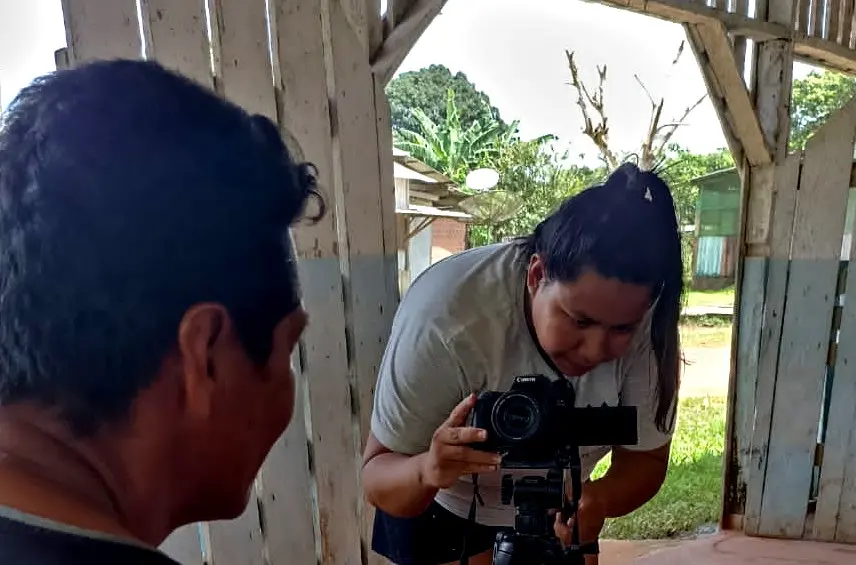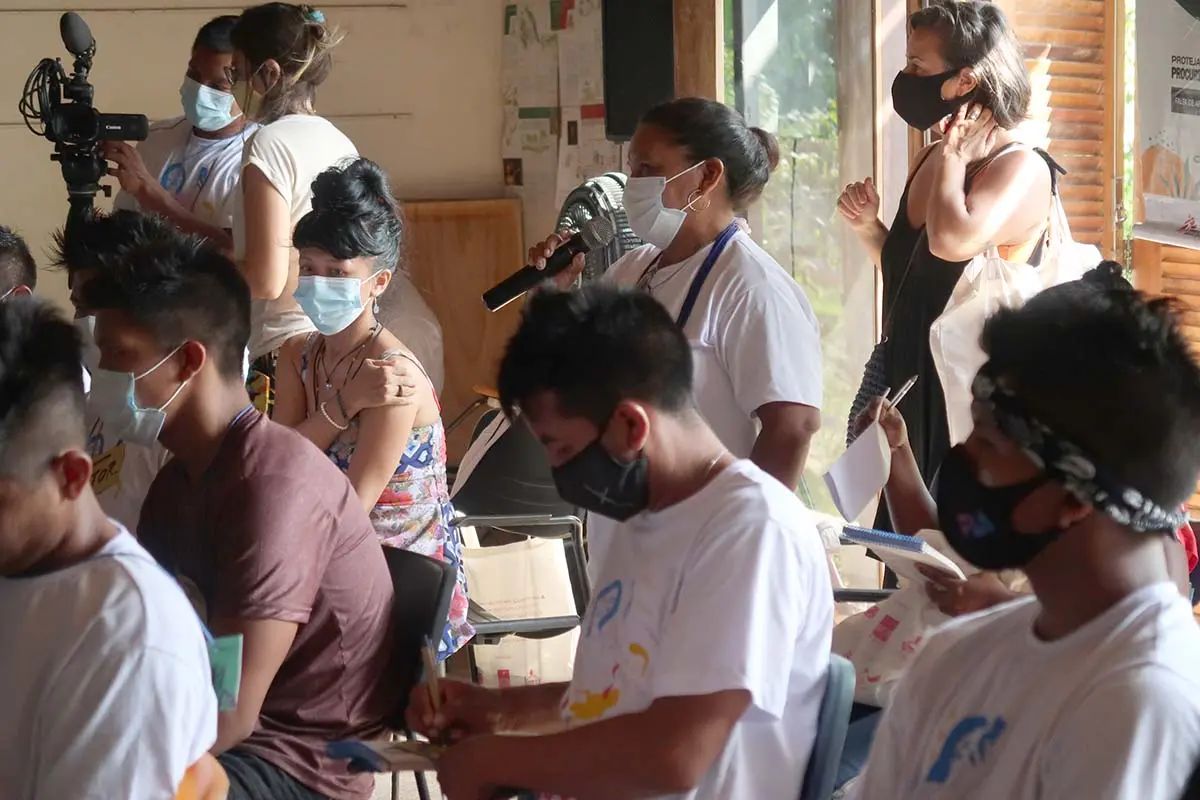This story excerpt was translated from Portuguese. To read the original story in full, visit JOTA. You may also view the original story on the Rainforest Journalism Fund website here. Our website is available in English, Spanish, bahasa Indonesia, French, and Portuguese.
The communicator Luene Karipuna recognizes that it is natural that when someone receives an impacting news, they are curious and interested in passing it on to as many people as possible. "If we analyze a newspaper headline, it is constructed to capture the reader's attention," she comments. "But I also say: It's important to always doubt."
Since much of the information circulates among Indigenous people through WhatsApp groups or other messaging services, which do not have a feature to check the veracity, making sure that what a person received on his or her cell phone came from reliable sources ends up depending exclusively on him or her.
To mitigate the spread of fake news, some Indigenous collectives have launched podcasts to help different ethnic groups identify when information is not true. One of the initiatives is led by Luene, who is from the Karipuna people, who live in the extreme end of the country. The group she composes, the Young Communicators of Oiapoque (AP), and herself promote workshops to teach her people and neighboring peoples to identify when news is false.
"Here in Oiapoque it really happens that many people believe this information and don't know how to search if this information is true," comments Karipuna. "This problem intensifies with the elections; if we already had this problem before, it will increase.





















